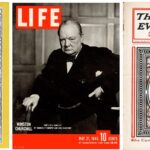Matthew Philpotts tackles the question of what makes a great editor in his article at Eurozine. In it, he not only looks at the individual skills but also the “strong editorial collectivity and social conditions favourable to publishing.” It’s a great read. Philpotts offers seven “theses on editorship,” and I find the third to be most interesting: “Good editorship demands a pleurality of competences.”
Philpotts highlights four domains of competence in the editorial function. There are a set of administrative competences often overlooked – the capacity to organize an office, understand finances and such. And of course there are the competences required of the editor: the subject-specific knowledge needed to revise contributions, edit and write. But it’s his description of the first two skills that I find most interesting:
I love how Philpotts takes a “sociological approach to editorship” in his evaluation of a role bound in a paradox. “On the one hand, editorship is inherently plural and social and resists reduction to a single individual. On the other hand, the individual editor remains dominant, not only in ideological discourses of editorship but also, in many cases, in the influence they exercise on their publication and the range of responsibilities that they undertake … these forces come into productive conflict. The study of editorship is the study of those encounters.”






